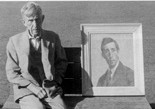Internationalism Quotes
Quotes tagged as "internationalism"
Showing 1-30 of 39

“The hand that gives is among the hand that takes. Money has no fatherland, financiers are without patriotism and without decency, their sole object is gain.”
―
―

“What do you want with these special Jewish pains? I feel as close to the wretched victims of the rubber plantations in Putamayo and the blacks of Africa with whose bodies the Europeans play ball… I have no special corner in my heart for the ghetto: I am at home in the entire world, where there are clouds and birds and human tears.”
―
―

“I remember feeling that pieces of me were scattered around the world; I belonged to her, Mother Earth.”
― Bird of Paradise: How I Became Latina
― Bird of Paradise: How I Became Latina

“Should I, too, prefer the title of 'non-Jewish Jew'? For some time, I would have identified myself strongly with the attitude expressed by Rosa Luxemburg, writing from prison in 1917 to her anguished friend Mathilde Wurm:
An inordinate proportion of the Marxists I have known would probably have formulated their own views in much the same way. It was almost a point of honor not to engage in 'thinking with the blood,' to borrow a notable phrase from D.H. Lawrence, and to immerse Jewishness in other and wider struggles. Indeed, the old canard about 'rootless cosmopolitanism' finds a perverse sort of endorsement in Jewish internationalism: the more emphatically somebody stresses that sort of rhetoric about the suffering of others, the more likely I would be to assume that the speaker was a Jew. Does this mean that I think there are Jewish 'characteristics'? Yes, I think it must mean that.”
― Hitch 22: A Memoir
What do you want with these special Jewish pains? I feel as close to the wretched victims of the rubber plantations in Putamayo and the blacks of Africa with whose bodies the Europeans play ball… I have no special corner in my heart for the ghetto: I am at home in the entire world, where there are clouds and birds and human tears.
An inordinate proportion of the Marxists I have known would probably have formulated their own views in much the same way. It was almost a point of honor not to engage in 'thinking with the blood,' to borrow a notable phrase from D.H. Lawrence, and to immerse Jewishness in other and wider struggles. Indeed, the old canard about 'rootless cosmopolitanism' finds a perverse sort of endorsement in Jewish internationalism: the more emphatically somebody stresses that sort of rhetoric about the suffering of others, the more likely I would be to assume that the speaker was a Jew. Does this mean that I think there are Jewish 'characteristics'? Yes, I think it must mean that.”
― Hitch 22: A Memoir
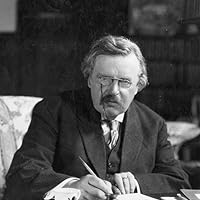
“Internationalism is in any case hostile to democracy….The only purely popular government is local, and founded on local knowledge. The citizens can rule the city because they know the city; but it will always be an exceptional sort of citizen who has or claims the right to rule over ten cities, and these remote and altogether alien cities…To make all politics cosmopolitan is to create an aristocracy of globe-trotters. If your political outlook really takes in the Cannibal Islands, you depend of necessity upon a superior and picked minority of the people who have been to the Cannibal Islands; or rather of the still smaller and more select minority who have come back.”
― What I Saw in America
― What I Saw in America

“Religions and states and classes and tribes and nations do not have to work or argue for their adherents and subjects. They more or less inherit them. Against this unearned patrimony there have always been speakers and writers who embody Einstein's injunction to 'remember your humanity and forget the rest.' It would be immodest to claim membership in this fraternity/sorority, but I hope not to have done anything to outrage it. Despite the idiotic sneer that such principles are 'fashionable,' it is always the ideas of secularism, libertarianism, internationalism, and solidarity that stand in need of reaffirmation.”
― Prepared for the Worst: Selected Essays and Minority Reports
― Prepared for the Worst: Selected Essays and Minority Reports

“...being Latino means being from everywhere, and that is exactly what America is supposed to be about.”
― Bird of Paradise: How I Became Latina
― Bird of Paradise: How I Became Latina

“One of the goals of this show is to have a much more genuinely global perspective [...] This really is a global, collaborative endeavor [...] There is a shared working condition that's universal, and there are overlapping trajectories and aspirations and we can learn from each other.”
―
―
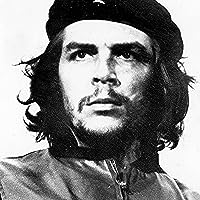
“[The young communist] must always pay attention to the mass of human beings he lives among. Every Young Communist must fundamentally be human, so human that he draws closer to humanity's best qualities. Through work, through study, and through ongoing solidarity with the people and all the peoples of the world, he distills the best of what man is. Developing to the utmost the sensitivity to feel anguish when a human being is murdered in any corner of the world and to feel enthusiasm when a new banner of freedom is raised in any corner of the world. [Applause]
The Young Communist cannot be limited by national borders. The Young Communist must practice proletarian internationalism and feel it as his own.”
―
The Young Communist cannot be limited by national borders. The Young Communist must practice proletarian internationalism and feel it as his own.”
―
“Meanwhile she's coldly interrogating me with her eyes. She's definitely in charge of this house and this moment. This must be Chloe.
She escorts me to a table full of people and presents me. She introduces them briefly. This one's from Morocco, that one from Italy, he's Persian--I'm not exactly sure what that means--this one's from "the UK." They're all in their twenties, poised and dismissive. They don't know or care who I'm supposed to be at home or where I went to school. They're measuring something else I can't see and don't understand.
They nod and turn back to each other. They seem to be waiting for a cue from Chloe to release them from having to feign interest. She introduces herself at substantially more length. Her father is Chinese and her mother is Swiss; she grew up in Hong Kong and "in Europe."
I grew up in Michigan and in Michigan. But she didn't ask.”
― Emergency Sex (And Other Desperate Measures) : True Stories from a War Zone
She escorts me to a table full of people and presents me. She introduces them briefly. This one's from Morocco, that one from Italy, he's Persian--I'm not exactly sure what that means--this one's from "the UK." They're all in their twenties, poised and dismissive. They don't know or care who I'm supposed to be at home or where I went to school. They're measuring something else I can't see and don't understand.
They nod and turn back to each other. They seem to be waiting for a cue from Chloe to release them from having to feign interest. She introduces herself at substantially more length. Her father is Chinese and her mother is Swiss; she grew up in Hong Kong and "in Europe."
I grew up in Michigan and in Michigan. But she didn't ask.”
― Emergency Sex (And Other Desperate Measures) : True Stories from a War Zone

“A “right of nations” which is valid for all countries and all times is nothing more than a metaphysical cliché of the type of ”rights of man” and “rights of the citizen.” Dialectic materialism, which is the basis of scientific socialism, has broken once and for all with this type of “eternal” formula. For the historical dialectic has shown that there are no “eternal” truths and that there are no “rights.” ... In the words of Engels, “What is good in the here and now, is an evil somewhere else, and vice versa” – or, what is right and reasonable under some circumstances becomes nonsense and absurdity under others. Historical materialism has taught us that the real content of these “eternal” truths, rights, and formulae is determined only by the material social conditions of the environment in a given historical epoch.”
―
―
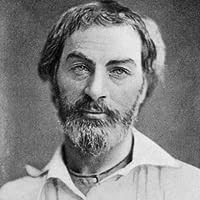
“America means above all toleration, catholicity, welcome, freedom--a concern for Europe, for Asia, for Africa, along with its concern for America. It is something quite peculiar, hardly to be stated--evades you as the air--yet is a fact everywhere preciously present.”
― Walt Whitman Speaks: His Final Thoughts on Life, Writing, Spirituality, and the Promise of America: A Library of America Special Publication
― Walt Whitman Speaks: His Final Thoughts on Life, Writing, Spirituality, and the Promise of America: A Library of America Special Publication

“Restrict nothing--keep everything open: to Italy, to China, to anybody. I love America, I believe in America, because her belly can hold and digest all--anarchist, socialist, peacemakers, fighters, disturbers or degenerates of whatever sort--hold and digest all. If I felt that America could not do this I would be indifferent as between our institutions and any others. America is not all in all--the sum total: she is only to contribute her contribution to the big scheme. What shall that contribution be? I say, let it be something worth while--something exceptional, ennobling.”
― Walt Whitman Speaks: His Final Thoughts on Life, Writing, Spirituality, and the Promise of America: A Library of America Special Publication
― Walt Whitman Speaks: His Final Thoughts on Life, Writing, Spirituality, and the Promise of America: A Library of America Special Publication
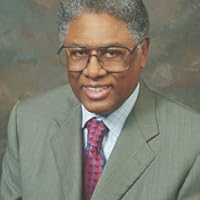
“Despite a tendency in some intellectual circles to see the nation as just a subordinate part of the world at large — some acting, or even describing themselves, as citizens of the world — patriotism is, in one sense, little more than a recognition of the basic fact that one’s own material well-being, personal freedom, and sheer physical survival depend on the particular institutions, traditions and policies of the particular nation in which one lives. There is no comparable world government and, without the concrete institutions of government, there is nothing to be a citizen of or to provide enforceable rights, however lofty or poetic it may sound to be a citizen of the world.”
― Intellectuals and Society
― Intellectuals and Society

“The values of solidarity, collectivism, and internationalism are not so much desirable as they are actually mandated by nature and reality itself.”
― The Quotable Hitchens from Alcohol to Zionism: The Very Best of Christopher Hitchens
― The Quotable Hitchens from Alcohol to Zionism: The Very Best of Christopher Hitchens

“The point of what we are all doing, wherever we are doing it, whether or not we see our actions in exactly the same framework, is to create spaces in which humans and nature can thrive, to make demands on the present system and force it to respond, to find contradictions in it and heighten them, to bend it until it either gives way or snaps.”
―
―
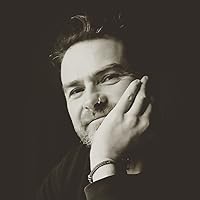
“Have you noticed, it's always the nationalists who deny climate change," says Eve. "Like they can't handle the challenge of thinking globally. I just wish they didn't take us all down with them.”
― Life As A Kite
― Life As A Kite

“he economy is not going to be nearly as important as it was before. This may be unimaginable to people who have been accustomed to framing all of our problems in terms of economics, but think of how religions and states faded as the dominant endogroups when new transcendental endogroups appeared. Things that appear essential to society can fade into irrelevance if they are based only on endoreality, as economics is.”
― The Creation of Me, Them and Us
― The Creation of Me, Them and Us

“An endogroup, as explained in The Creation of Me, Them and Us, is an emergency power structure that humans instinctually create and support in response to external threat. A mono-empire has no external endogroup to act as an existential threat and so a mono-empire cannot form or maintain its defensive structure. It dissolves even as it attempts to form.”
― The Creation of Me, Them and Us
― The Creation of Me, Them and Us

“A mono-empire has no external endogroup to act as an existential threat and so a mono-empire cannot form or maintain its defensive structure. It dissolves even as it attempts to form.”
― The Creation of Me, Them and Us
― The Creation of Me, Them and Us
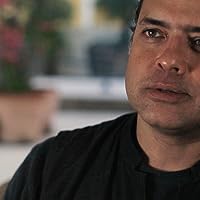
“[W]ho would have thought that by the mid-twentieth century the darker nations would gather in Cuba, once the playground of the plutocracy, to celebrate their will to struggle and their will to win? What an audacious thought: that those who had been fated to labor without want, now wanted to labor in their own image!”
― The Darker Nations: A People's History of the Third World
― The Darker Nations: A People's History of the Third World

“That inferior minds confine their thoughts within the bounds of the country where they are born; but those to whom God has given a greater degree of light, omit nothing that may be of defence to them from afar.”
―
―
“The demands of the Young Lords could have been written today. We believed in the power of the people and in community and personal transformation. We demanded the redistribution of economic and social resources. We fought for racial justice and the equality of women. As internationalists, we condemned all political, economic, and military intervention by one nation against another. We battled proudly against exploitation, social injustice, and colonial domination. It was a call for revolution!”
― Through the Eyes of Rebel Women: The Young Lords, 1969-1976
― Through the Eyes of Rebel Women: The Young Lords, 1969-1976

“Today, nearly two-thirds of the citizens in EU countries believe immigration has a harmful impact on their societies. Cosmopolitanism, once considered a virtue, is less in vogue than nativism.”
― Fascism: A Warning
― Fascism: A Warning
“International life is carried on between the extremes of isolationism and internationalism. We try to help our fellow human beings in some ways, at some times, and in some places; but we do not actually take overall responsibility for their welfare.”
― International Law: A Very Short Introduction
― International Law: A Very Short Introduction
“Tribal subdivisions often to a great extent obscure the broad understanding of historical phenomena. We study History from a one-sided national point of view, and are thus incapable of grasping the true general point of view of the most important events. One-sidedness is purposely fostered, to keep up artificial animosities between the different particles of one whole — to blind the people, and make them easy tools for plunder and murder, when it may happen to be convenient to the Government of some special branch of the same Indo-European or European-Aryan, or Teuton family.”
― The Science of History
― The Science of History
“La necessitat que l'internacionalisme no siga marginal i escapista justifica l'afirmació que, a Catalunya, l'internacionalisme efectiu o solidari comença per l'actitud que es pren davant del País Valencià. No crec massa exagerat afirmar que el 99.9% dels catalans (inclosos els que tenen consciència nacional) coneixen molt poc la societat valenciana (i, sovint, gens). Davant d'aquesta situació, convé dir que qui és ignorant d'una societat no hi pot ser solidari.”
― Mozaik multilingue minim: eskrit segons el Projekte d'Ortografia Fonetica Unika Europea
― Mozaik multilingue minim: eskrit segons el Projekte d'Ortografia Fonetica Unika Europea
“L'internacionalisme afectiu i solidari és molt més fàcil de trobar dins dels pobles sense estat i dins dels estats uninacionals que no dominen cap altre poble.”
― Mozaik multilingue minim: eskrit segons el Projekte d'Ortografia Fonetica Unika Europea
― Mozaik multilingue minim: eskrit segons el Projekte d'Ortografia Fonetica Unika Europea
All Quotes
|
My Quotes
|
Add A Quote
Browse By Tag
- Love Quotes 99k
- Life Quotes 77k
- Inspirational Quotes 74k
- Humor Quotes 44k
- Philosophy Quotes 30k
- Inspirational Quotes Quotes 27.5k
- God Quotes 26.5k
- Truth Quotes 24k
- Wisdom Quotes 24k
- Romance Quotes 23.5k
- Poetry Quotes 22.5k
- Death Quotes 20k
- Life Lessons Quotes 20k
- Happiness Quotes 19k
- Quotes Quotes 18k
- Faith Quotes 18k
- Hope Quotes 18k
- Inspiration Quotes 17k
- Spirituality Quotes 15.5k
- Religion Quotes 15k
- Motivational Quotes 15k
- Writing Quotes 15k
- Relationships Quotes 14.5k
- Life Quotes Quotes 14.5k
- Love Quotes Quotes 14.5k
- Success Quotes 13.5k
- Time Quotes 12.5k
- Motivation Quotes 12.5k
- Science Quotes 12k
- Motivational Quotes Quotes 11.5k


